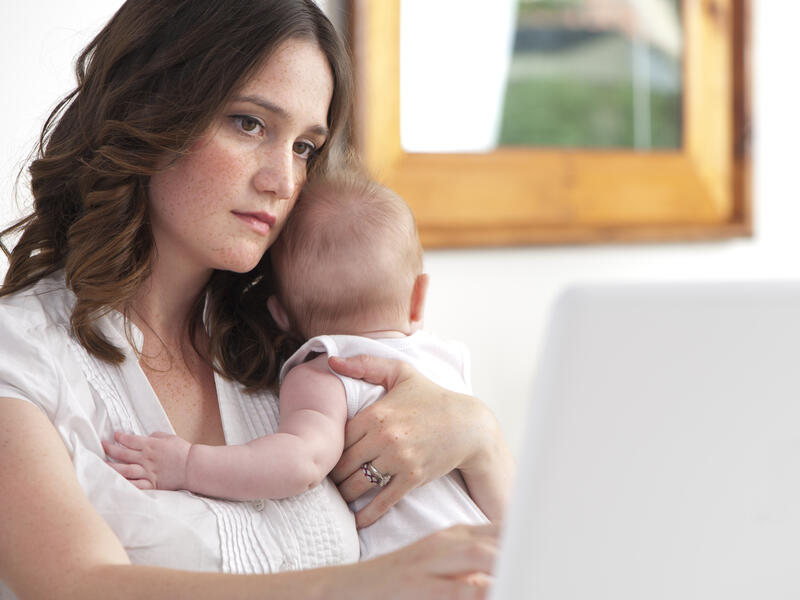Having a baby usually brings a range of emotions that can include extreme highs and lows.
These up-and-down feelings are common and can result from fluctuating hormones and adjustments to a new routine. This information will help you determine the difference between baby blues and postpartum depression.
Am I experiencing baby blues?
A majority (60-70%) of new moms experience some degree of baby blues.
Symptoms of baby blues:
- Mood changes
- Weepiness or sadness
- Anxiety
- Lack of concentration
- Feelings of dependency or inadequacy
- Insomnia
If you experience any of these symptoms, be sure to:
- Maximize rest
- Use a relaxation technique that works for you (walk, listen to music, take a bath, talk, read, meditate)
- Seek support and resources
Baby blues should not impact self and/or baby care.
If the baby blues worsen or don’t improve after two weeks, reach out to your health care provider.
Am I experiencing postpartum depression?
Postpartum depression points:
- Postpartum depression can come on suddenly after giving birth or more gradually in the 12 months after baby’s birth.
- You may be more at risk if you have experienced any depression in the past.
- Postpartum depression is different from the baby blues because it lasts longer and is more severe.
Symptoms of postpartum depression can include any of the following:
- Extreme exhaustion
- Irritability
- Appetite and sleep disturbances
- Persistent weepiness or sadness
- Difficulty concentrating
- Mood swings
- Excessive worrying and anxiety
- No motivation
- Thoughts of harming yourself or your baby
If you or your support person experience any of these symptoms, you should seek help from your health care provider. It’s important to know that postpartum depression is not a mother’s fault or a measure of one’s parenting ability; it is caused by a chemical imbalance in the brain.
Postpartum depression is very treatable. However, it typically does not go away on its own. Treatment may include talk therapy, support, a wellness plan, and possibly medication.
If you have questions or concerns, please contact your health care provider.
Learn more
- The transition from postpartum to parenting
- Prep for baby, postpartum, and ‘fourth trimester’
- Managing the emotional challenges of pregnancy
…
Posted In Behavioral Health, Health Information, Parenting, Pregnancy, Women's
